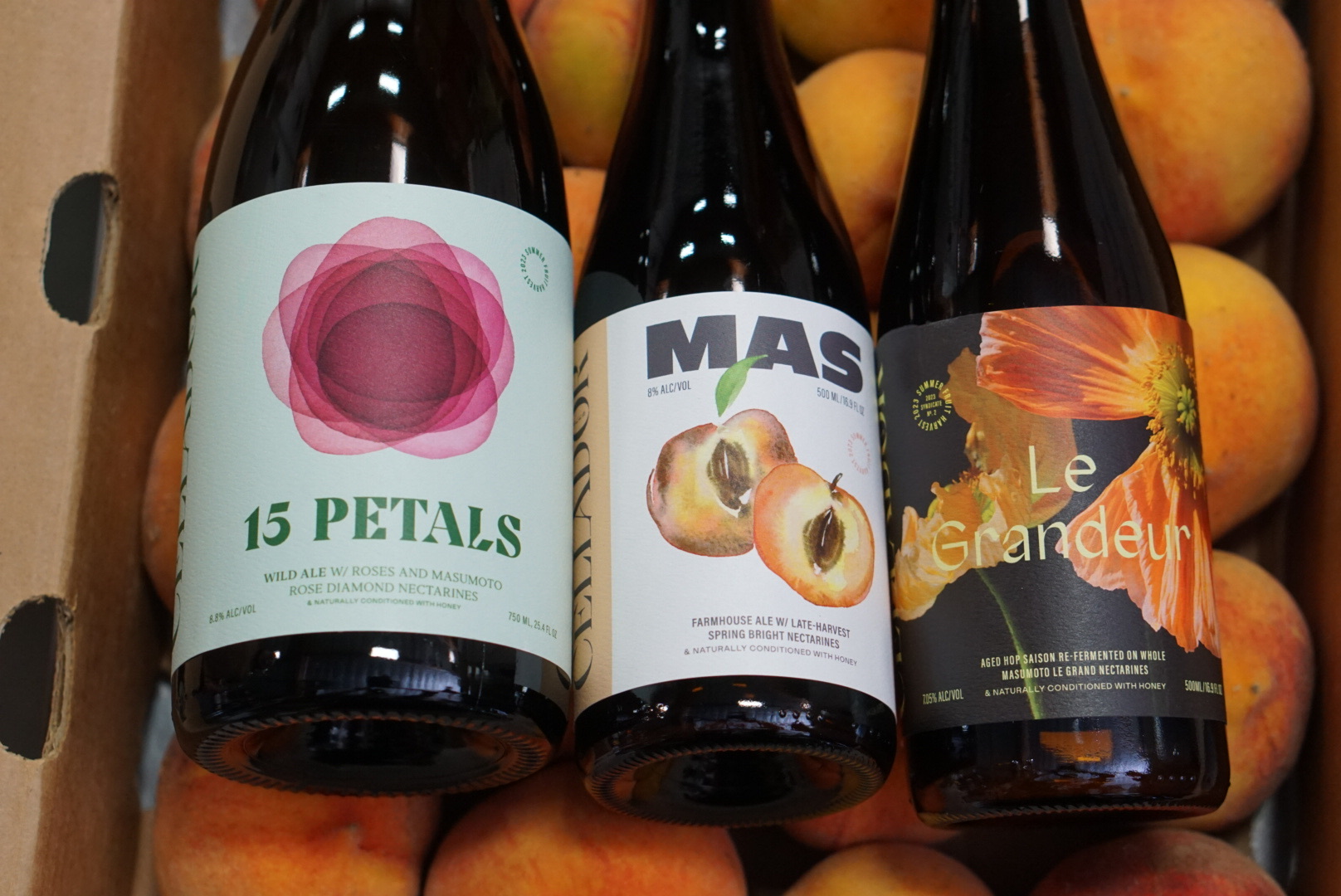“If anybody has a more labor-intensive and expensive way to make beer, I’m generally interested,” Alex Ourieff says.
He is only half-joking as he carefully climbs onto an old wine barrel he has stuffed with the prized flesh of about 300 organic “Sun Crest” peaches sourced from Masumoto Family Farms in Fresno and mixed with his house blend of saison ale.
Ourieff is the beer blender and owner of Cellador Ales in Torrance. And this specific peach has been described as “one of the last truly remaining juicy peaches” by David Mas Masumoto, the second-generation farmer who grows the prestigious stonefruit, as well as the author of Epitaph of a Peach.
Ourieff gingerly puts his other leg up on top of another barrel across an aisle stacked four barrels high, doing a split with his legs spread across each barrel, not unlike Jean Claude Van Damme.

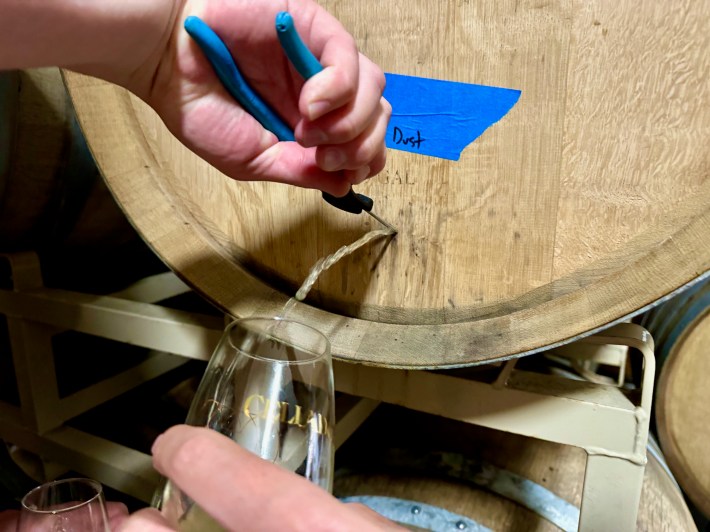
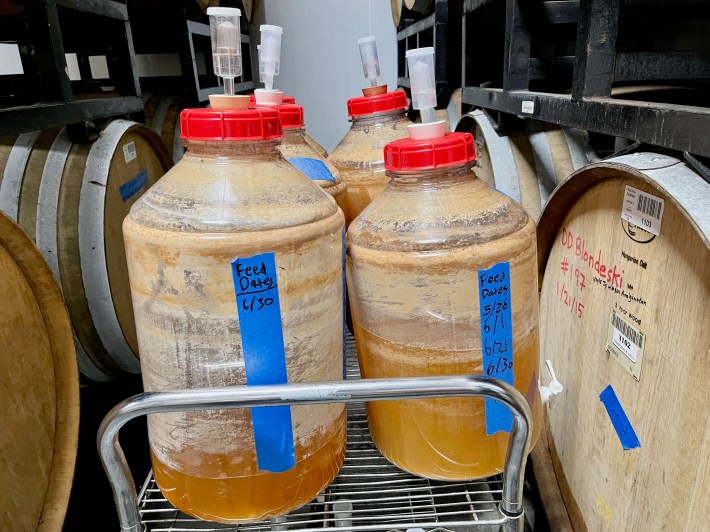
He then removes the nail plugging the barrel, which holds Cellador’s first ever 100% wild cider made from Newtown Pippin apples that he had shipped frozen from Oregon, to sample the liquid fresh from the barrel. A steady whiz of cloudy, half-fermented apple juice pisses into a wine glass, splashing around the bottom. The room we are in holds more than 160 barrels filled with all-wild, fermented goodness.
Masumoto’s peaches and nectarines—during peak summer season—fetch $8 a pound on average at farmers markets around California. This farm’s stonefruit is the muse for pastry chefs at every other nice restaurant in Los Angeles or San Francisco. When properly ripened, they are so complex texturally, visually, and flavor-wise that on many menus, the fruit is served simply sliced on a plate.
But not Ourieff.
He, his tiny staff, and a rotating crew of die-hard fans who volunteer to make the drive to L.A.’s South Bay to remove the pit from each fruit—which he saves to make another wild fermented beer to extract its almond essence, “Fuckified”— and hand-squish each pulpy fruit into the barrels, skin and all.
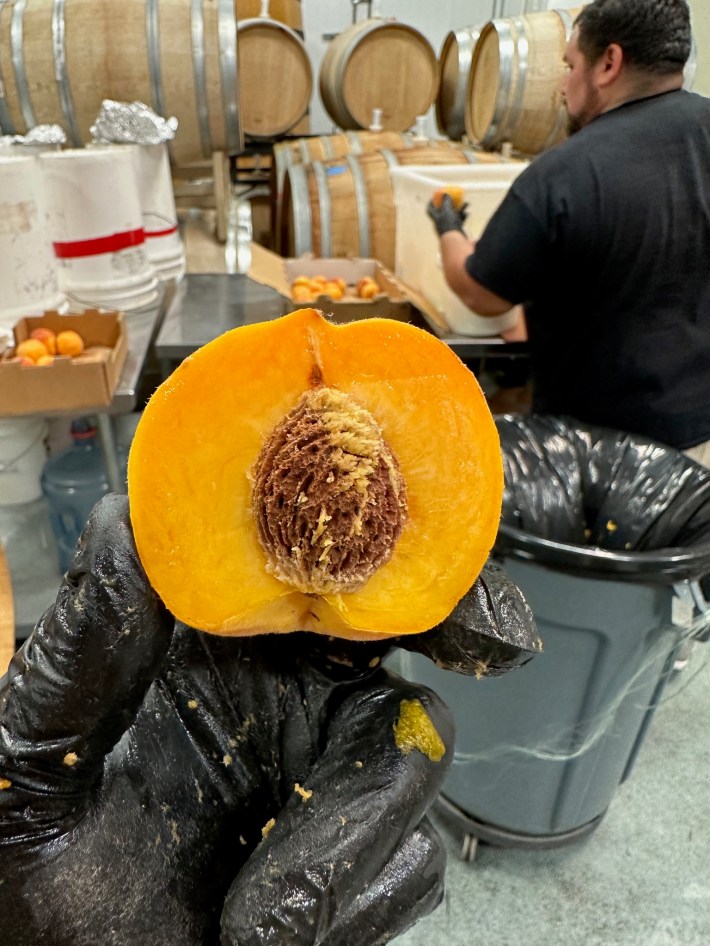

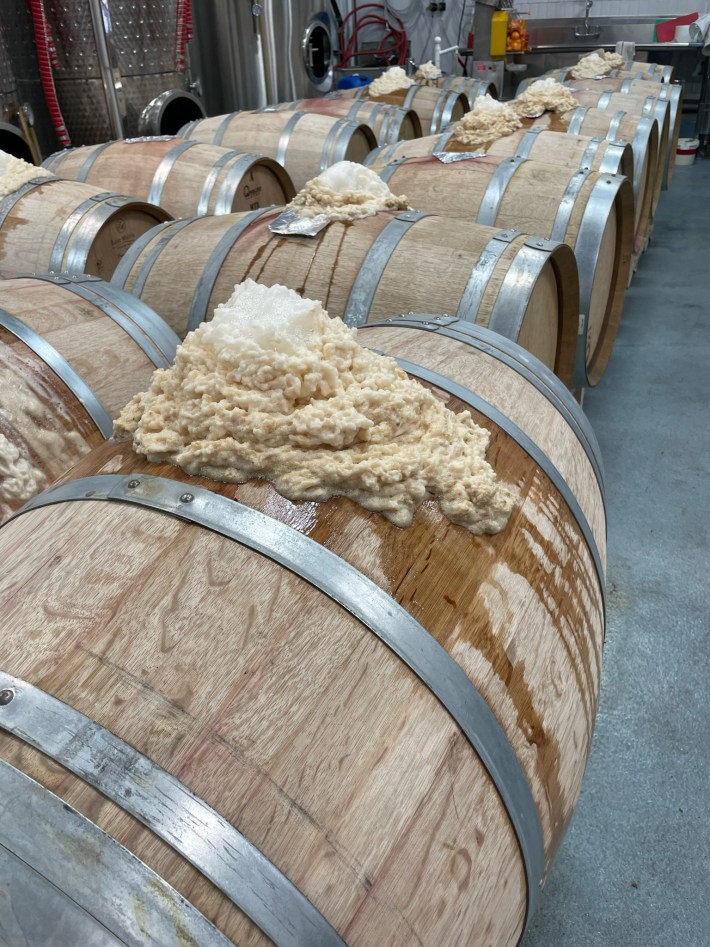
The process is messy, and peach juices fly everywhere, yet he does this for every single peach from the 6,000 pounds he sources from Masumoto. This year, Ourieff adopted three stonefruit trees at the farm. He drives up regularly with volunteers to pick the fruit off the trees himself. Out of all of California’s 1,100 independently owned breweries, Cellador is the farm’s biggest buyer.
This painstaking process produces some of the wildest-tasting beer in Los Angeles, with more in common with a natural wine and sourdough bread than with an IPA.
“Making this kind of beer isn't what you do if you just want to turn a profit, and in fact, it's a pretty bad way to do that,” Ourieff tells L.A. TACO.
To bottle and tap, whether a pilsner or IPA, takes anywhere from two weeks to a month to make, while a barrel-aged sour can take up to six months to a year or more.
The style of traditional sour beer that is left out to age and ferment with natural yeasts goes back to 1900 in Belgium with Cantillon Brewery. In California, Russian River Brewing in Santa Rosa was the first to popularize wild ales in the early 2000s. In the 2010s, The Bruery’s pioneering blender “Sour Jesus,” kept the sour beer innovation going in Orange County alongside Long Beach’s Beachwood Brewery’s Blendery project.
In recent years, this expensive style of niche beer has died down to a greater degree, partially due to the cost of commercial real estate in Southern California and breweries simply finding that it makes more financial sense to brew beer faster. To bottle and tap, whether a pilsner or IPA, takes anywhere from two weeks to a month to make, while a barrel-aged sour can take up to six months to a year or more.
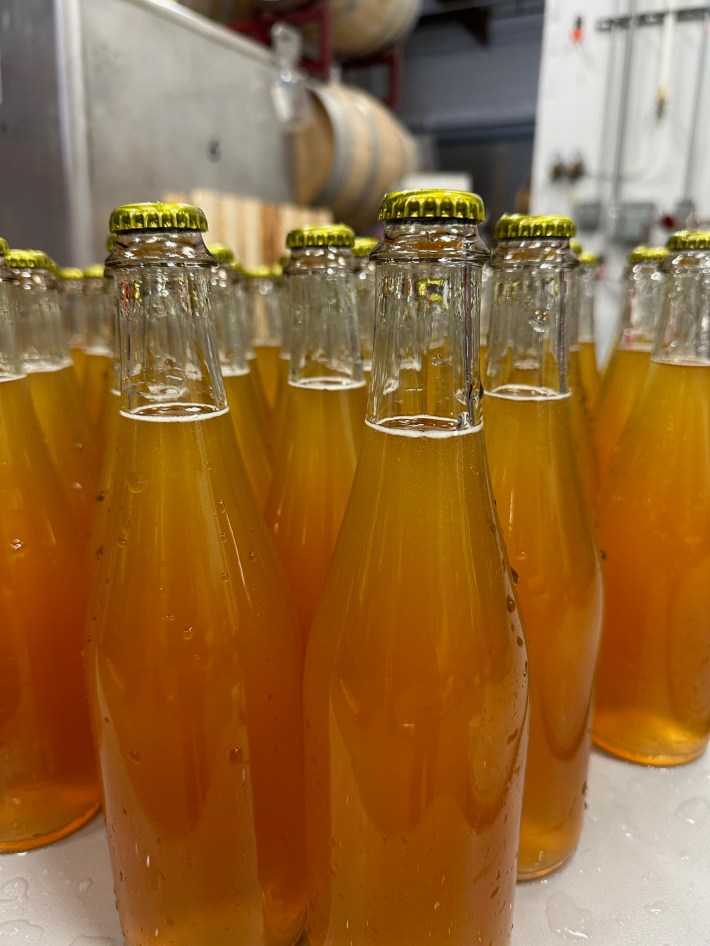
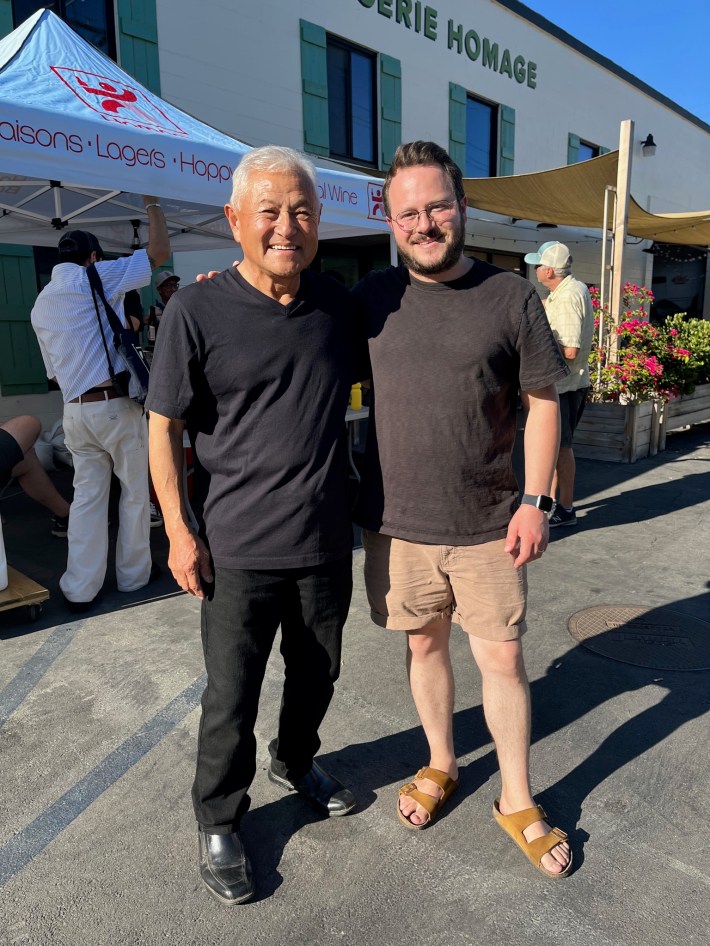
Cellador Ales is a double outlier in Southern California’s fading craft beer scene because it’s found a way to stay open despite the craft beer bubble bursting and the trend of Americans drinking less alcohol. What’s more admirable, though, is that it stayed open while sticking to its slow beer ethos and not switching, despite having lease troubles in its original San Fernando Valley brewing space and taproom.
What’s kept Cellador Ales alive are its beer club members, who subscribe to anywhere from 12 to 24 bottles of its particular juice a year and receive other perks like barrel tastings at its brewery. A handful of L.A.’s most decorated restaurants, like Michelin-starred N/Naka and Bestia, carry Ourieff’s beers because they stand on their own within their wine menus, along with a few bars that embrace Ourieff’s extremely exclusive fruited beers, like Hermosillo in Highland Park and all Father’s Office locations.
Cellador’s current brewery space, located in the backyard of Smog City Brewery, is open to the public but only for picking up beer and not enjoying it on the premises. Ourieff dreams of opening a taproom soon. You can find their bottles and four-packs, which range from $9 to $24, online and in a few bottle shops around town.
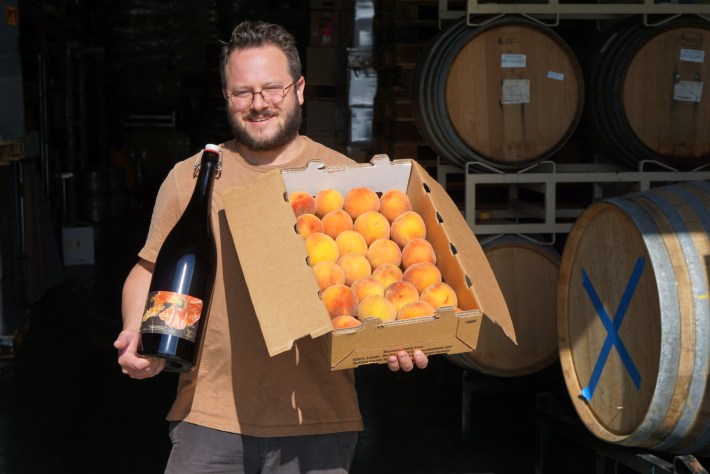
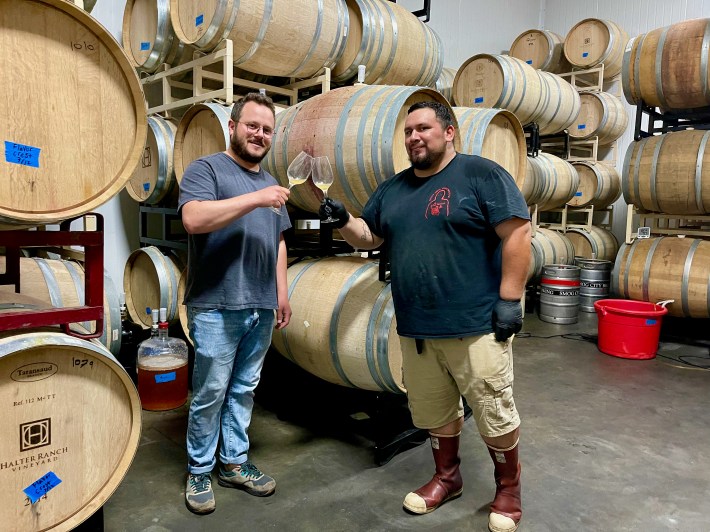
“I'm excited about the beers we produce,” Ourieff says, taking a big sip of his juice and smiling after finishing everything in the glass. Even after ten years in business, he loves this beer.
“I get to experiment with flavors and fermentation techniques,” he continues. “We have a fantastic and passionate staff; I get to work with some of the best restaurants and bars in the city, run by really excellent people; I get to work with the Masumotos and a bunch of other farmers who are passionate about what they grow and support them in what they're doing; we have a die-hard group of brewery members who support us and who've become friends, and I get to nerd out talking to all of those people. I do it because I love it creatively and because of the communities I get to be a part of.”
1879 Del Amo Blvd, Torrance, CA 90501
